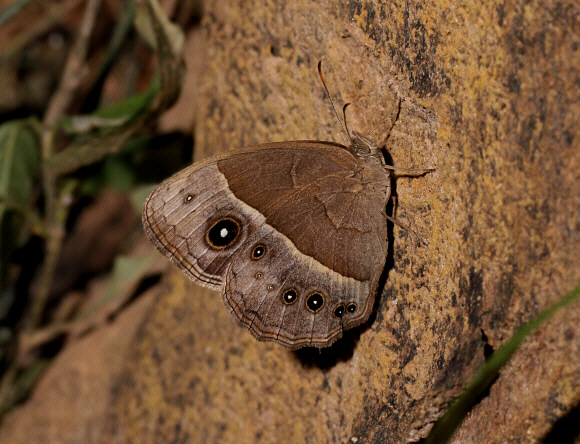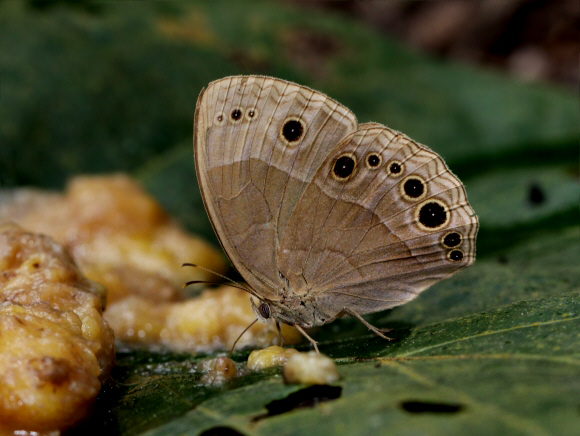
Introduction
Bicyclus is the most numerous of the Satyrine genera in Africa, comprising of about 85 species, 50 of which occur in West Africa. The butterflies are collectively known as Bush Browns, and can be thought of as the sister genus to the Asian Mycalesis.
Bicyclus are characterised by having a regular series of submarginal ocelli on the hindwings, and a pair of ocelli on the forewings, of which the lower ocellus is always the largest. In most species the ocelli are very prominent, but in a few species such as sweadneri they are vestigial, especially in the dry season morph. Most species have very rounded wings, but again there are a few exceptions such as zinebi which has a squarish apex on its forewings, and sambulos which has a stumpy “tail” on the hindwings.
Bicyclus safitza is found across Africa including Madagascar.

Habitats
This species is found mainly in savannah / woodland mosaics and open or degraded dry forests, but in the dry season it often enters rainforest, provided that it is not too dense.
Lifecycle
The larval foodplants include Paspalum, Schizachirium, Ehrharta and various other grasses.
Adult behaviour
The butterflies fly mainly on sunny mornings, in sheltered grassy areas where there are plenty of bushes. In the afternoon they tend to seek shade, hiding within bushes or beneath trees.
